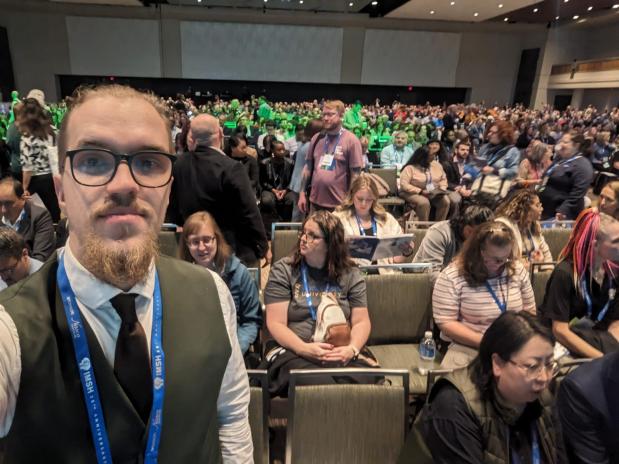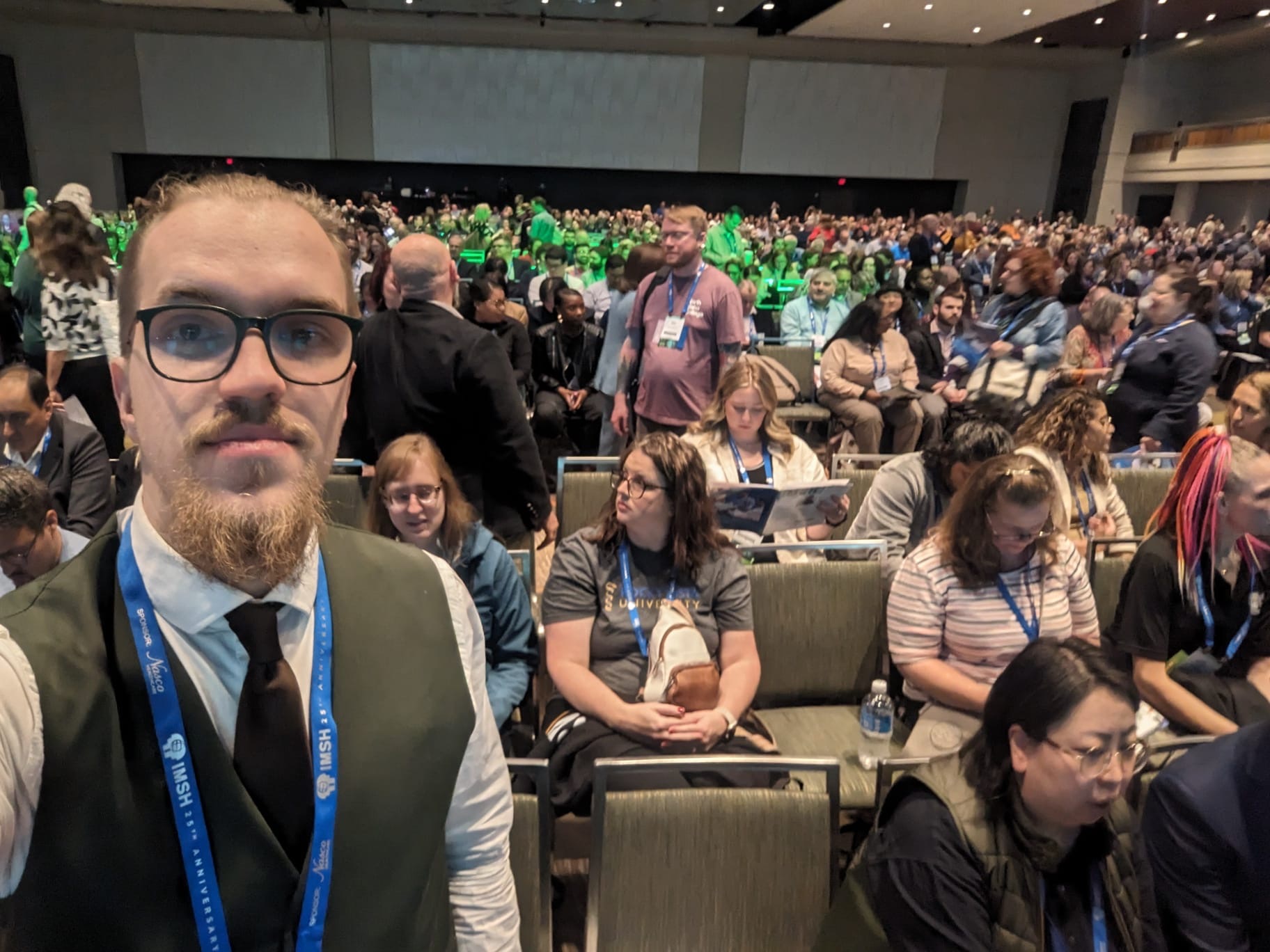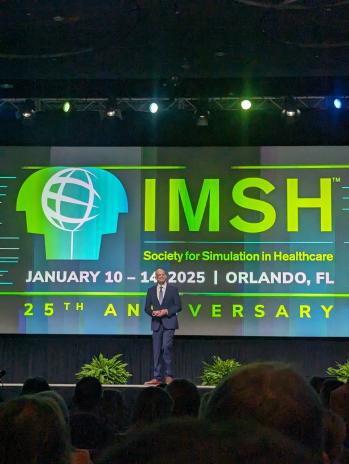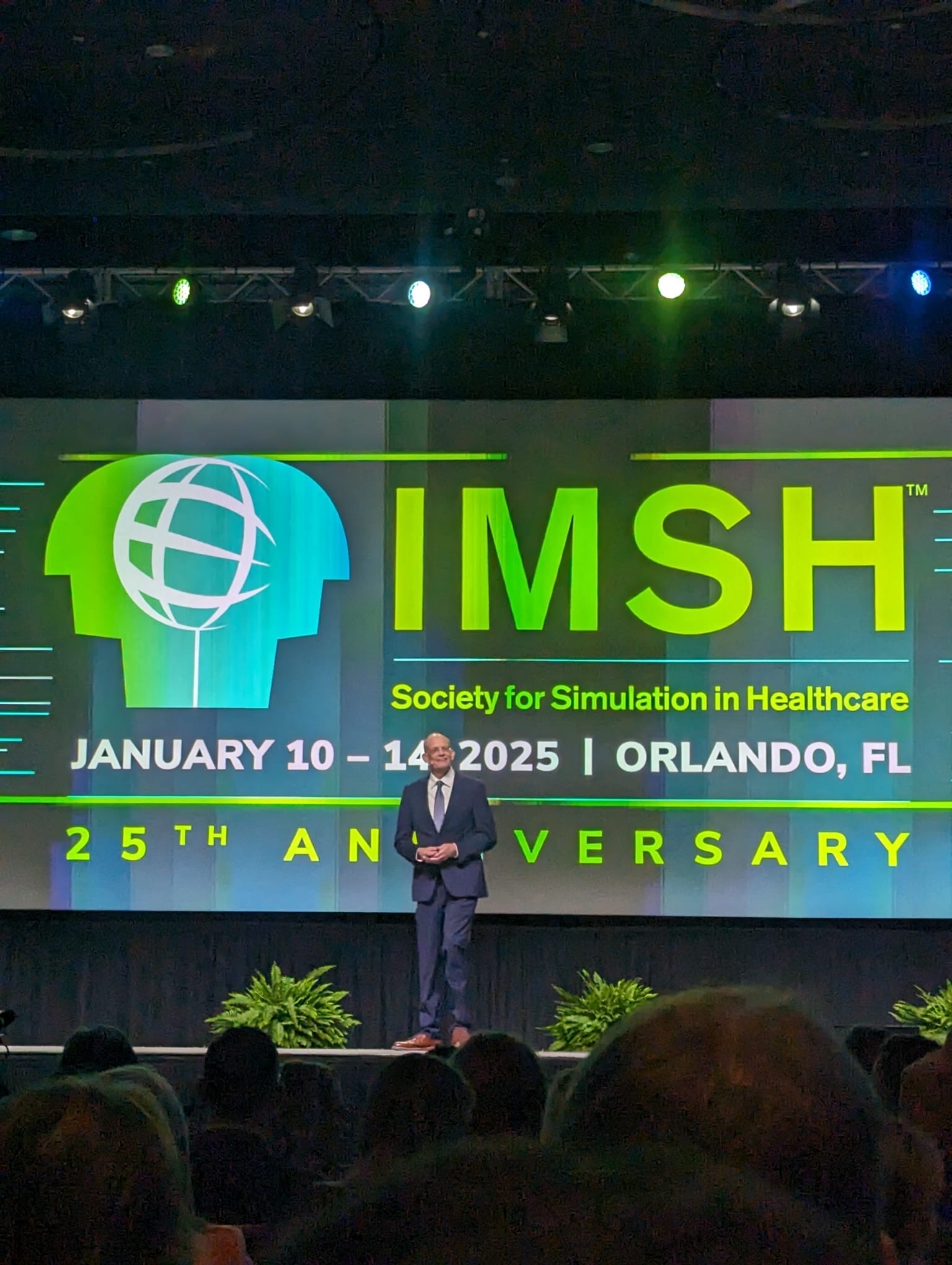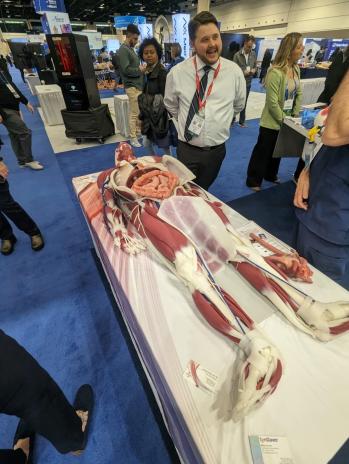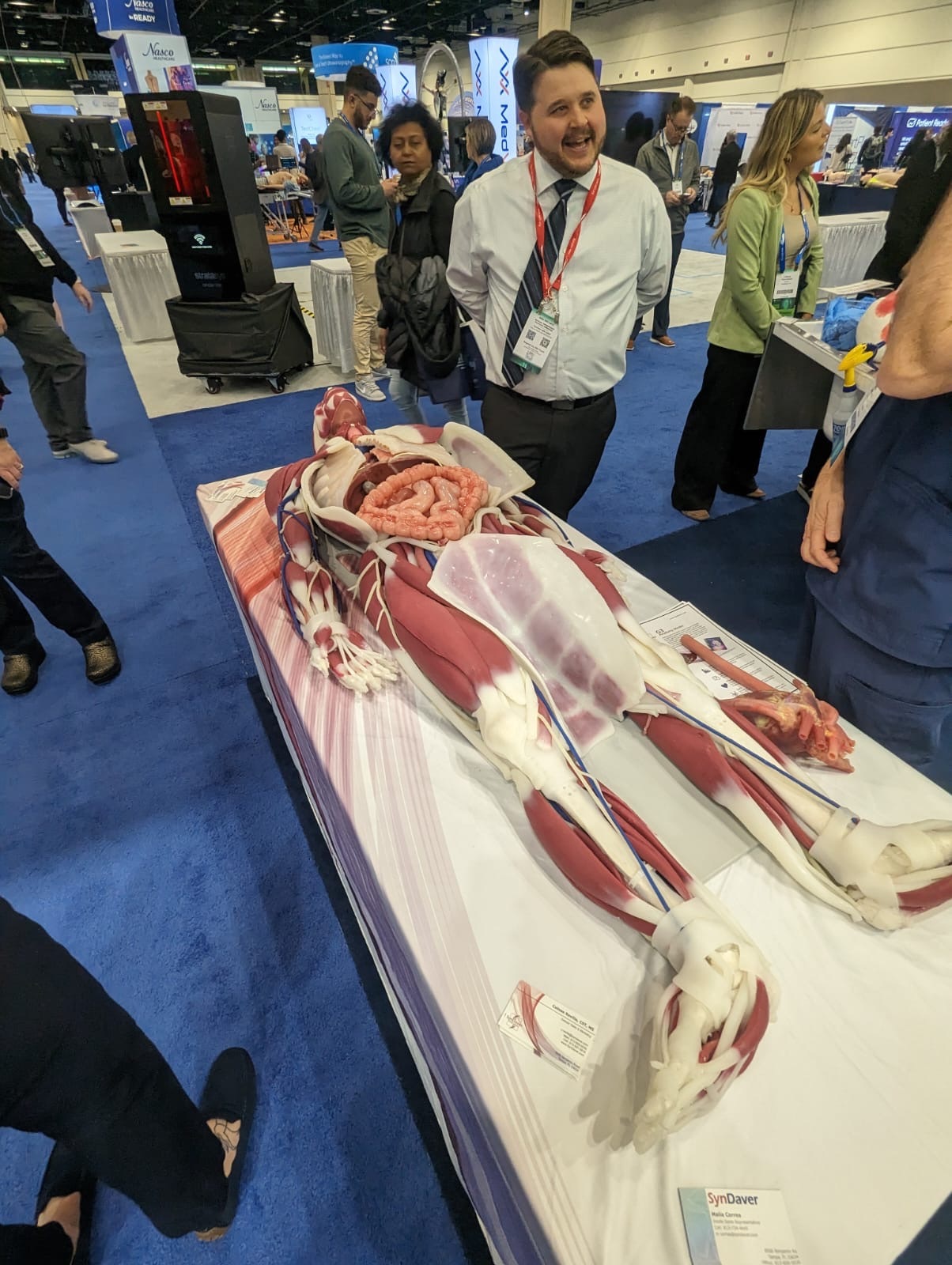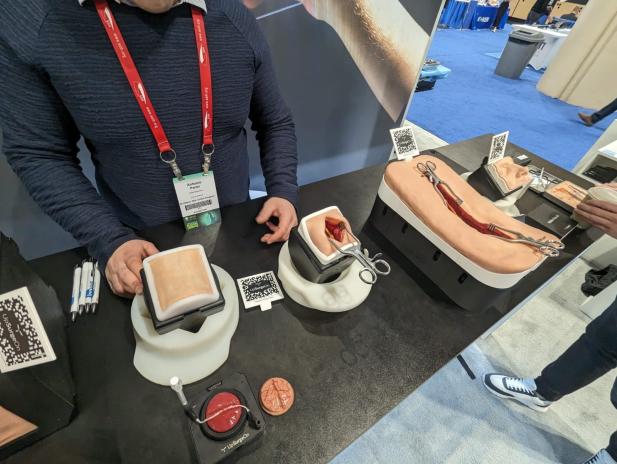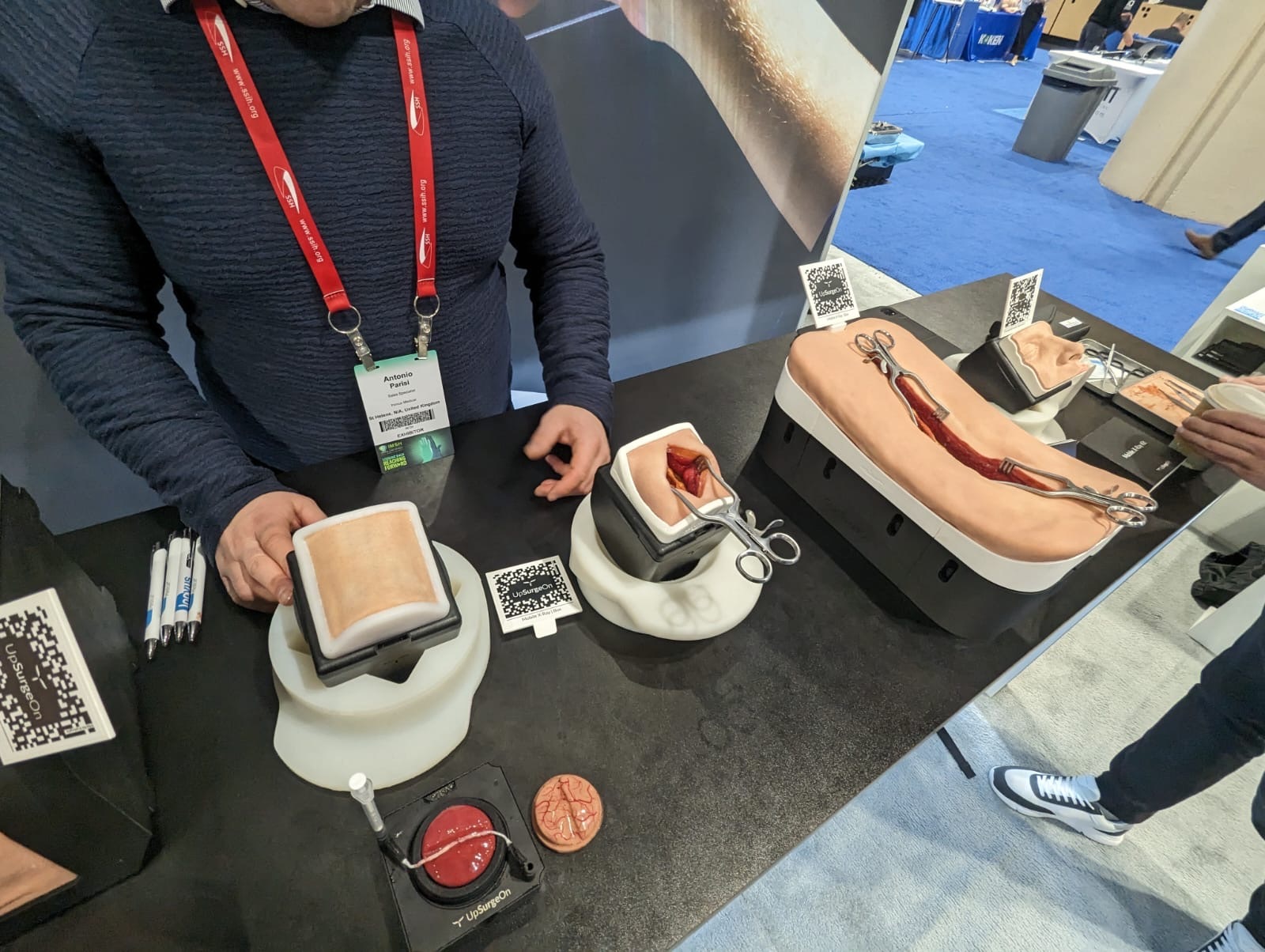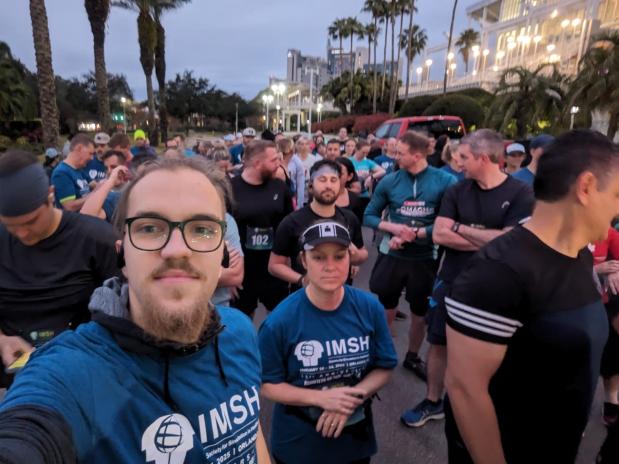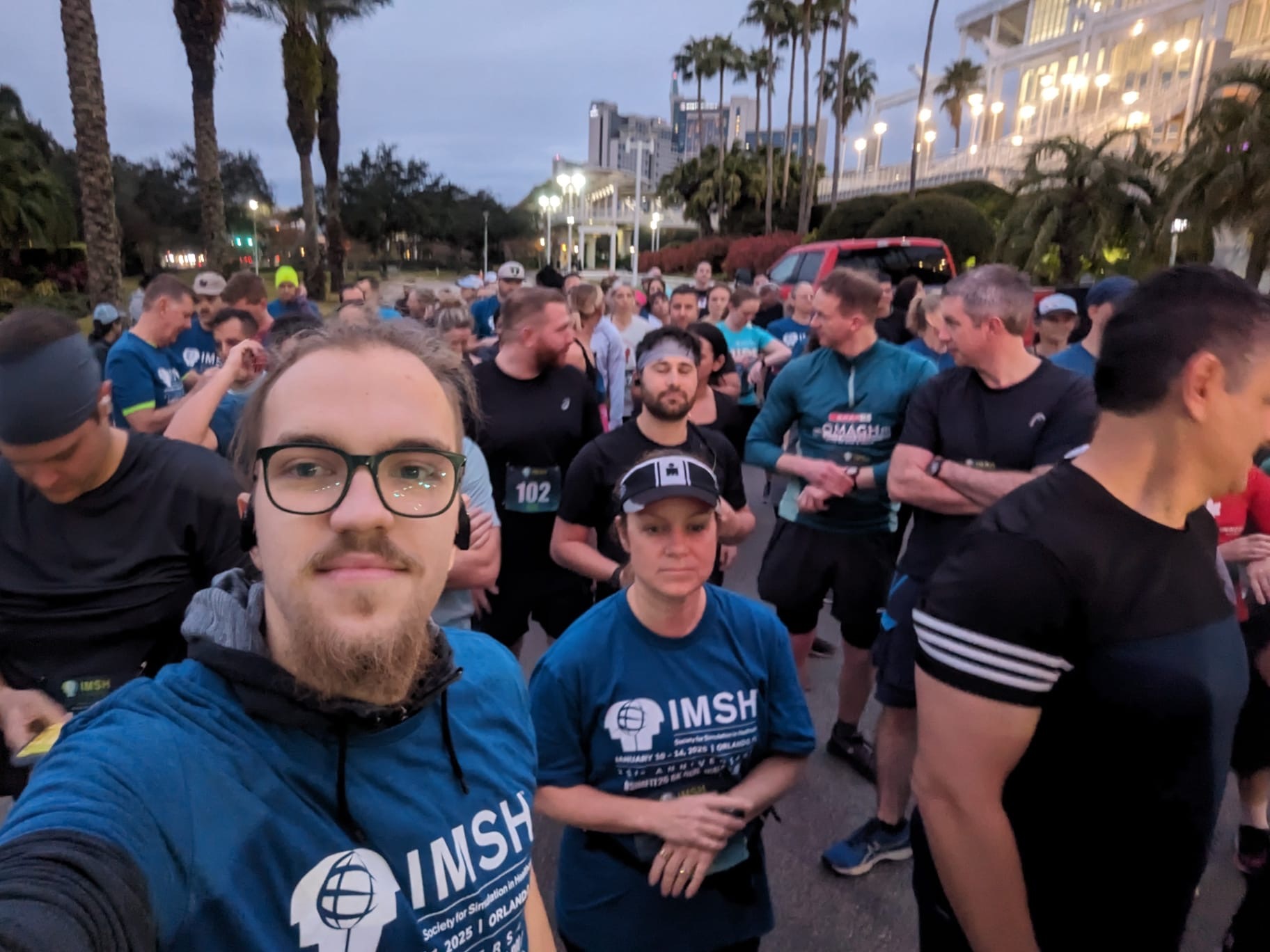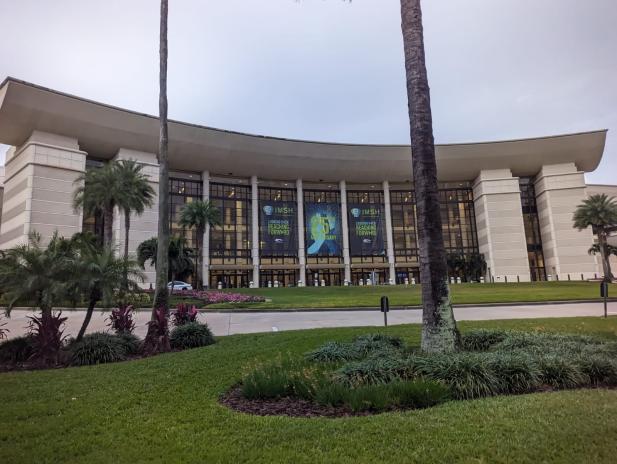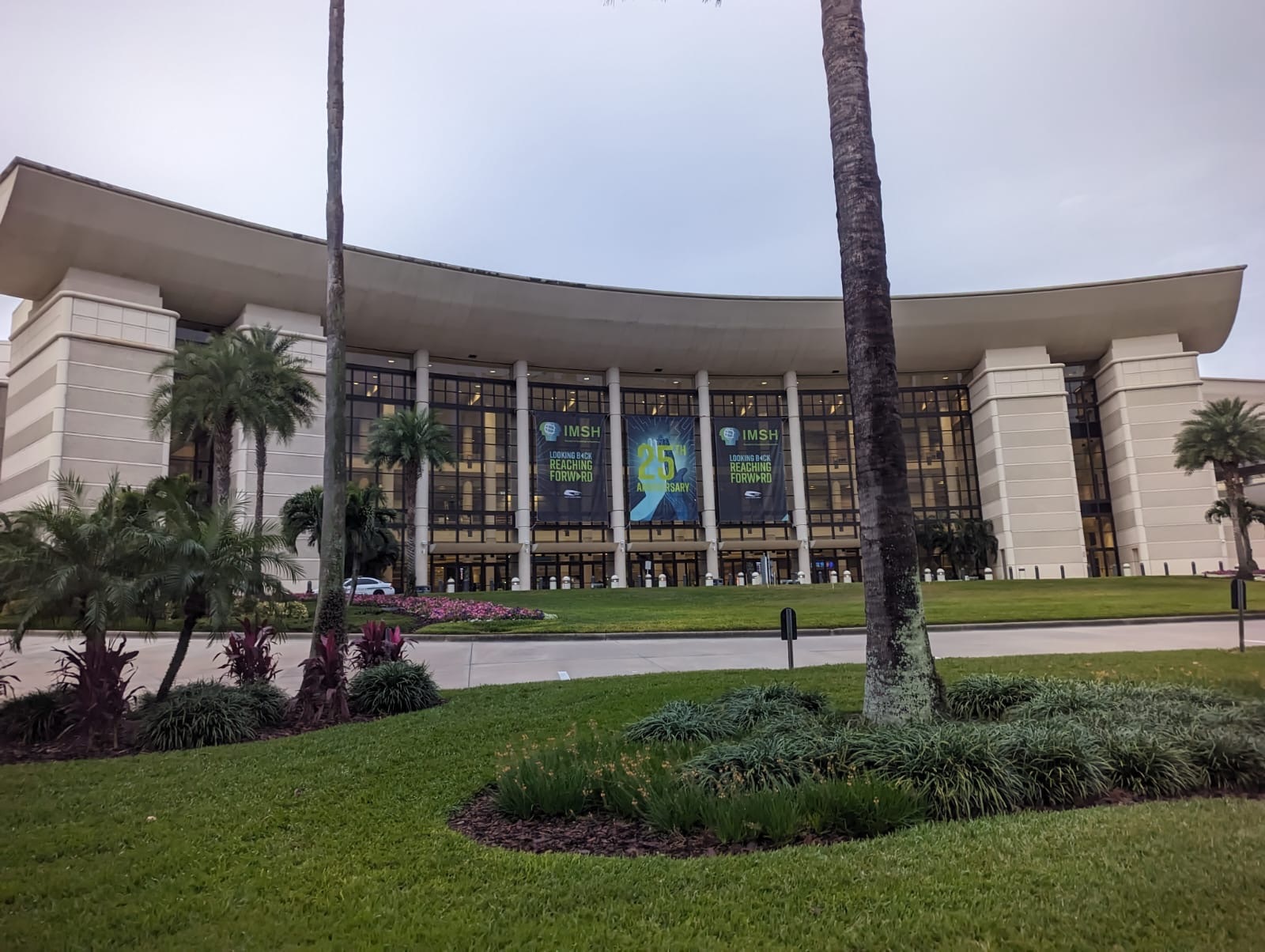A Glimpse into the Future of Healthcare Simulations: Aleksandrs Oborin's Experience at the IMSH Conference, USA
‘Rules in aviation are written in blood,’ is a saying that Aleksandrs Oborins has heard from his father, an aviation specialist, since childhood. At the same time, his mother - a doctor, has made it clear that in medicine, too, every mistake could cost a life. Perhaps it is this accuracy and responsibility inherent in the worlds of both parents that led Aleksandrs to the field of medical simulation, a place where mistakes are allowed to be made so that in real practice mistakes are eradicated altogether.
Aleksandrs Oborins is a 6th-year medical student at Rīga Stradiņš University (RSU). Alongside his studies, he works as the Head of Simulation-Based Education Development at the RSU Medical Education Technology Center (RSU METC). Seeking ways to make medical education in Latvia even more effective, Aleksandrs attended the world’s largest scientific conference in the field of clinical simulations – The International Meeting on Simulation in Healthcare (IMSH), held from January 10 to 14 in Orlando, USA. Aleksandrs shares his experience and insights from his time in America in the interview below.
What inspired you to apply for the IMSH conference?
"For the third year, I looked with great interest at the opportunities offered by this conference: workshops, latest technology exhibitions, networking with field experts in person etc.
I was constantly asking myself: how do I get there myself?
Thanks to a colleague I met at another conference in Europe, I found out about the Beverlee Anderson scholarship. I realized, if not now, then when? I wrote a motivation letter and received a great recommendation from the director of RSU METC Ieva Šlēziņa. I was lucky enough to be one of the four recipients of this scholarship," Aleksandrs explains.
What were your first impressions upon arriving in Orlando?
Aleksandrs: "It’s hard to describe how different the scale of events is in Latvia and America.
While we have one large exhibition hall at Ķīpsala, America has separate cities dedicated exclusively to scientific conferences and exhibitions.
his time, the conference gathered 4773 participants, with 1427 research abstracts presented and 781 workshops organized. Over 150 companies from 20 different countries participated in the exhibition."
Looking back on your trip, what do you think was the greatest benefit?
Aleksandrs: "I gained a lot from this experience. First, I have taken the first big step toward obtaining international certification as a simulation instructor by attending the Certified Healthcare Simulator Educator (CHSE) preparation course. Second, I met Daniel Raemer, the first president of SSH and a pioneer in simulations, as well as representatives from several simulation centers in the US and Europe, whom I can now call our potential future collaborators. From experts, I received advice on how to work more successfully on obtaining METC international accreditation, not only as part of the Society for Simulation in Europe (SESAM) but also as part of the Society for Simulation in Healthcare (SSH). Third, and most importantly, I had the opportunity to visit two simulation centers: the Center for Advanced Medical Learning and Simulation (CAMLS) and USF College of Nursing. Both of these centres have obtained SSH accreditation and offer high quality training."
How does simulation-based medical education in Latvia differ from what you saw in America?
Aleksandrs: "The visited simulation centers showed that Americans focus much more specifically on working with simulated patients.
In the USA, simulated patients are divided into three categories, the latter even allowing these patients to be subjected to invasive manipulation. In Europe, this would seem unacceptable to many.
I noticed that simulated patients are especially actively used in training future specialists at the nurse and resident stages of medical education. I believe we should follow this example. Currently, we are more focused on students, but it is residents who have already acquired basic skills and feel higher responsibility when dealing with real patients. As a future resident, I too would like to continue to improve practical skills through simulations.
I see that we are on the right track.
Already, RSU METC regularly integrates simulated patients into simulations during the study process, as well as in the preclinical practice Simulated Hospital. This year, for the first time, simulated patients were also part of the national exam in the "Medicine" study program, and we plan to further develop this approach."
How do you plan to apply the gained knowledge to RSU METC and your future plans?
Aleksandrs: "I would be happy to introduce new emergency response scenarios, interdisciplinary team training, innovative technological solutions, and more informal learning methods into the METC methodology. For example, I’m considering the idea of organizing student simulation competitions – ‘medical wrestle’ – within the International Students Conference (ISC) framework.
After graduation, I plan to stay in Latvia and become a resident.
We still have a lot to do here in Latvia. We have smart specialists, all the necessary resources, motivated students and teachers, a well-established technical base, and legal aspects.
I am determined to continue developing simulation-based medical education in Latvia, raising the prestige of METC both nationally and internationally. The future belongs to those who dare to build it!"
Related news
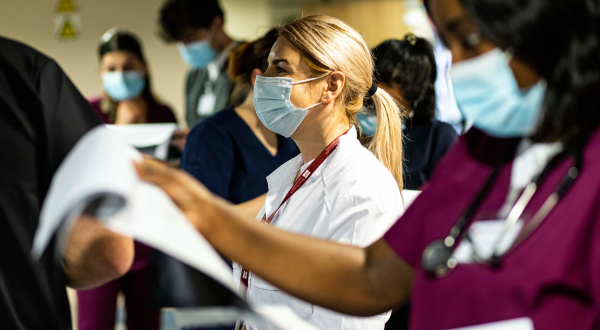 Learning from mistakes – RSU Faculty of Medicine launches reporting system to improve patient safety in clinical placementsAktualitātes
Learning from mistakes – RSU Faculty of Medicine launches reporting system to improve patient safety in clinical placementsAktualitātes